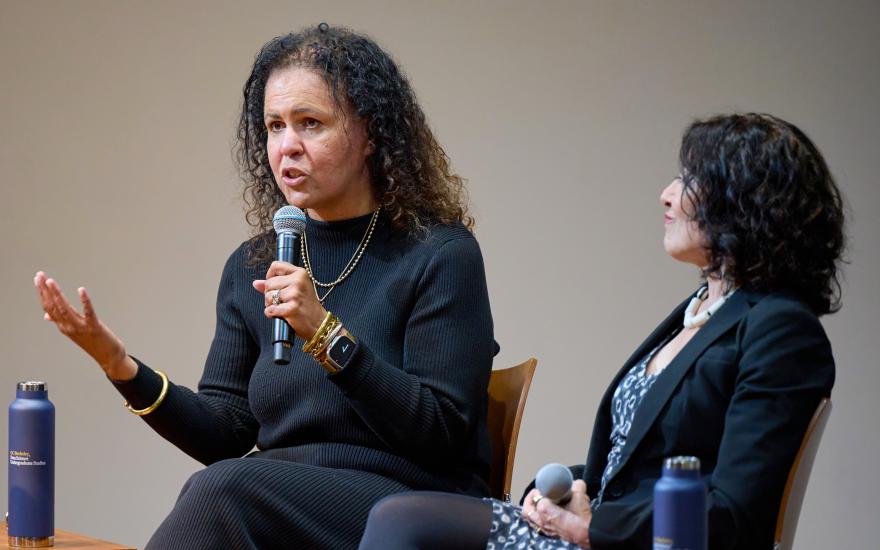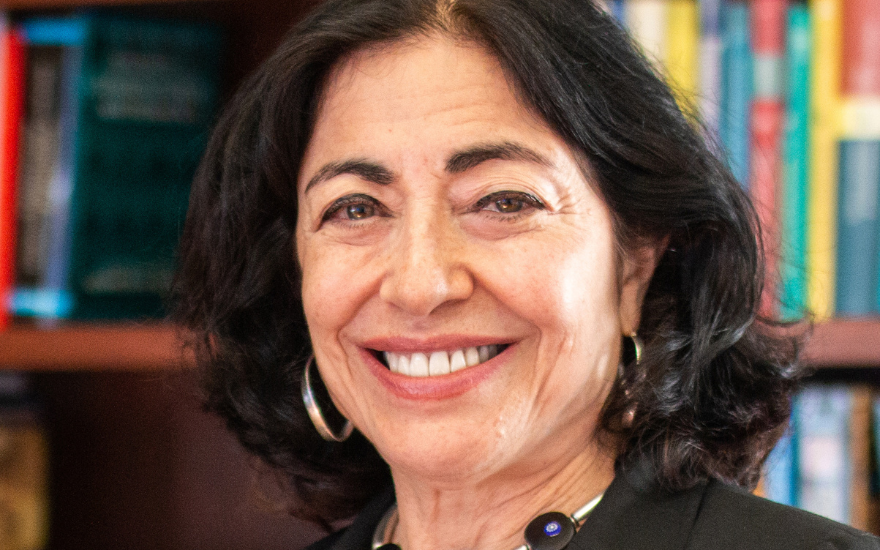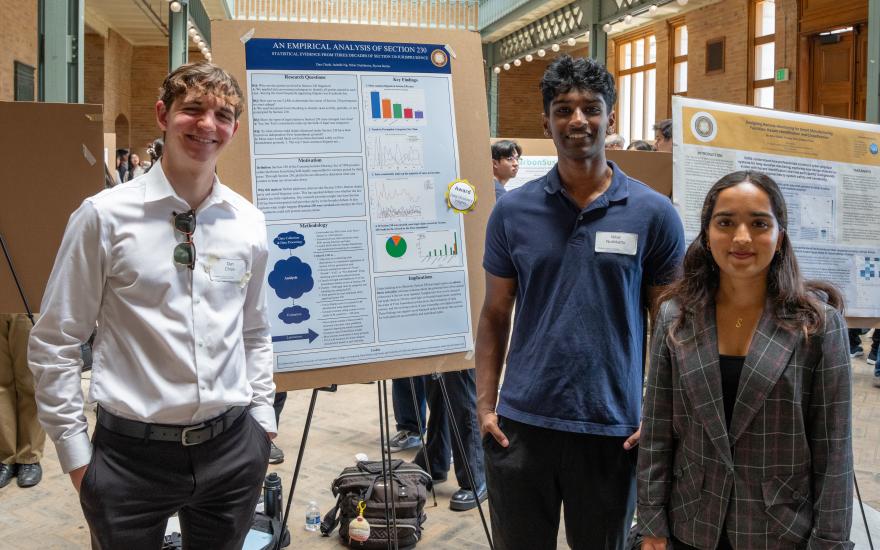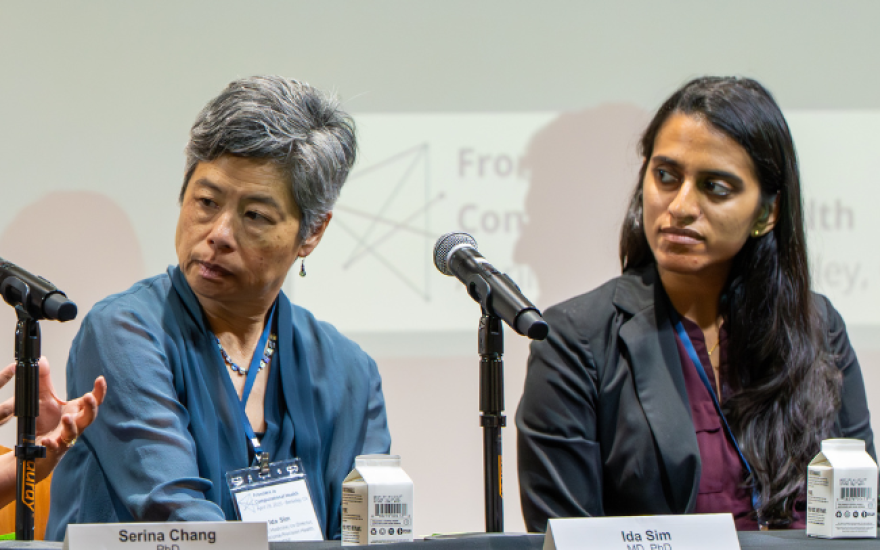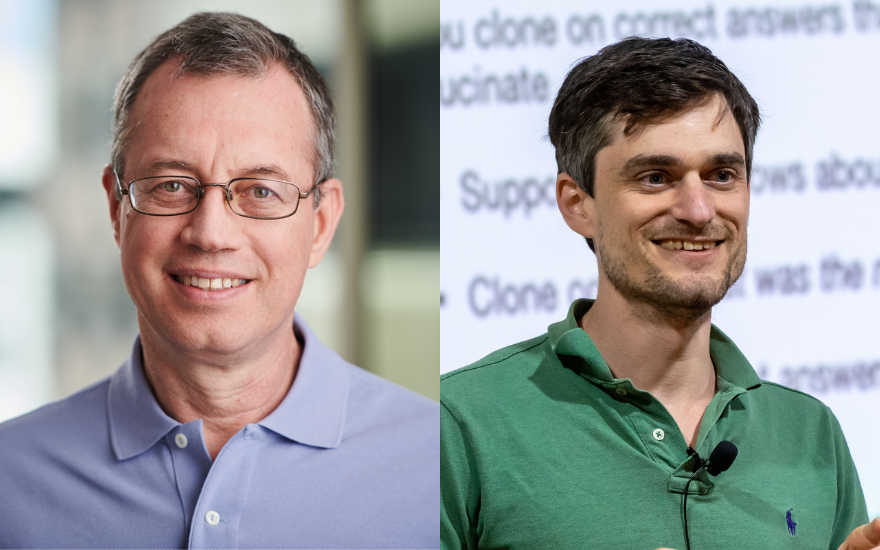
Two members of the Berkeley computer science community have been recognized with 2025 UC Berkeley Achievement Awards: Ion Stoica and John Schulman. These awards will be presented by the UC Berkeley Foundation and Cal Alumni Association at the Berkeley Charter Gala on May 22.
Ion Stoica
Stoica, a professor of electrical engineering and computer sciences, is the recipient of the 2025 Fiat Lux Faculty Award. The award recognizes a Berkeley faculty member whose extraordinary contributions advance the university’s philanthropic mission and transform its research, teaching. and programs.
Stoica’s work on distributed systems, artificial intelligence and cloud computing is at the forefront of data storage and management. He is co-founder and the executive chairman of Databricks, a company that has revolutionized how organizations manage, analyze and derive insights from massive data sets.
“Ion Stoica is the world leader in open source AI infrastructure, having created the open-source projects Spark and Ray, and transformed them into leading AI infrastructure companies,” said Jennifer Chayes, dean of the UC Berkeley College of Computing, Data Science, and Society.
“Ion has won numerous awards in computer science, mentored many graduate students who have gone on to become leaders in their fields, and led some of the most successful systems labs in history. Spark and Databricks are the dominant engine and company for data scientists and AI engineers worldwide. In a time marked by rapid AI tool development, Ion is helping Berkeley to lead the way in tackling the world's biggest challenges.”
John Schulman
Schulman, who received his Ph.D. in computer science from Berkeley in 2016, is the recipient of the 2025 Mark Bingham Award for Excellence in Achievement by Young Alumni. The award pays tribute to Mark Bingham ’93, who died on September 11, 2001, defending the United States on United Airlines Flight 93. The award is given to a young alum who graduated within the last 10 years and has made a significant contribution to their community, country or the world.
Schulman co-founded OpenAI in December 2015, shortly before finishing his Ph.D. at Berkeley. He has made significant contributions to AI research, particularly in pioneering the field of deep reinforcement learning. At OpenAI, Schulman led the reinforcement learning team that developed ChatGPT, the first AI chatbot to gain widespread use worldwide. His key innovation in moving AI chatbots from obscurity to widespread popularity was to not only train ChatGPT to imitate human written text but also to train it to optimize for goals and objectives with reinforcement learning.
Schulman left OpenAI last year for a stint at Anthropic. Earlier this year, he co-founded a new AI startup – Thinking Machines Lab – and serves as its chief scientist. His innovative work has shaped the direction of modern AI development and continues to influence cutting-edge research and applications.
“When I started working with John as a Ph.D. student, it was clear he had an unusual ability to slice through complicated materials with exceptional clarity, having both exceptional technical depth and high-level vision,” said Pieter Abbeel, Schulman’s Ph.D. advisor and professor of electrical engineering and computer sciences at Berkeley. Abbeel is also co-founder of Gradescope and Covariant and was an early employee at OpenAI.
“John essentially did three PhDs, making pioneering contributions in robot motion planning and control, in robot imitation learning, and then laying the foundation for deep reinforcement learning that is still today at the core of many frontier AI efforts, including large language models and robotics.”

